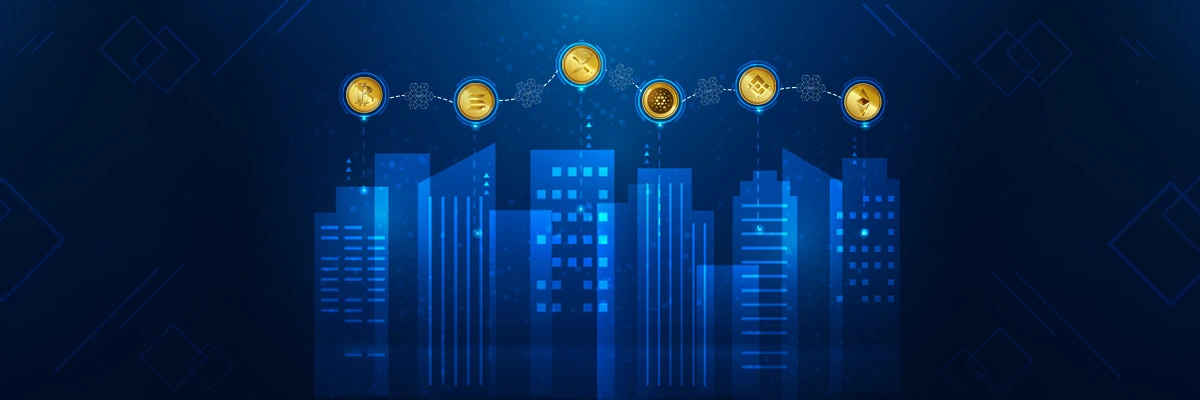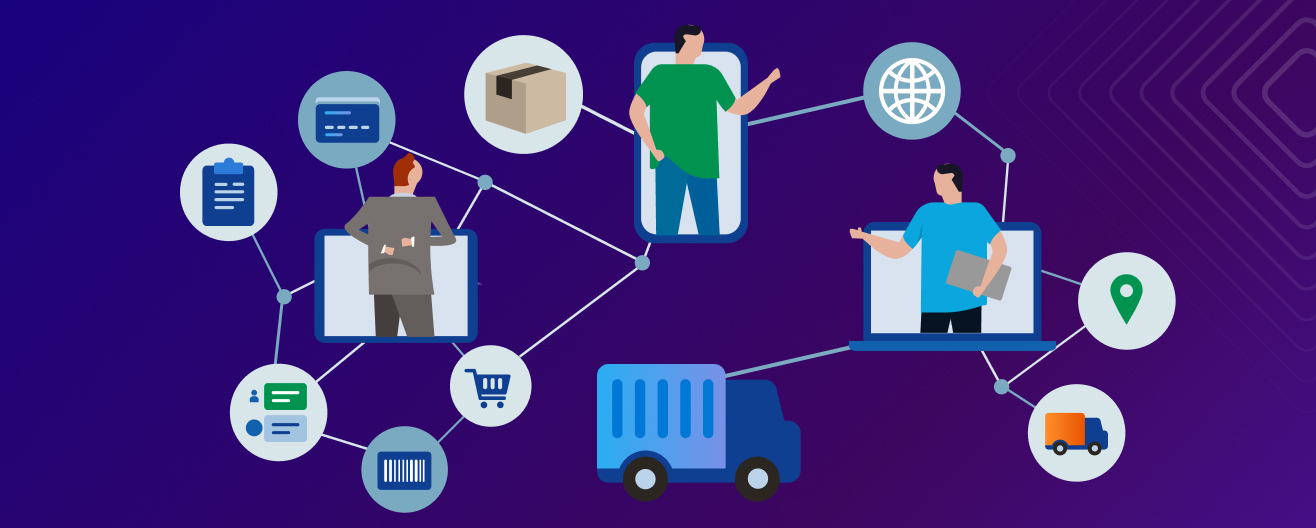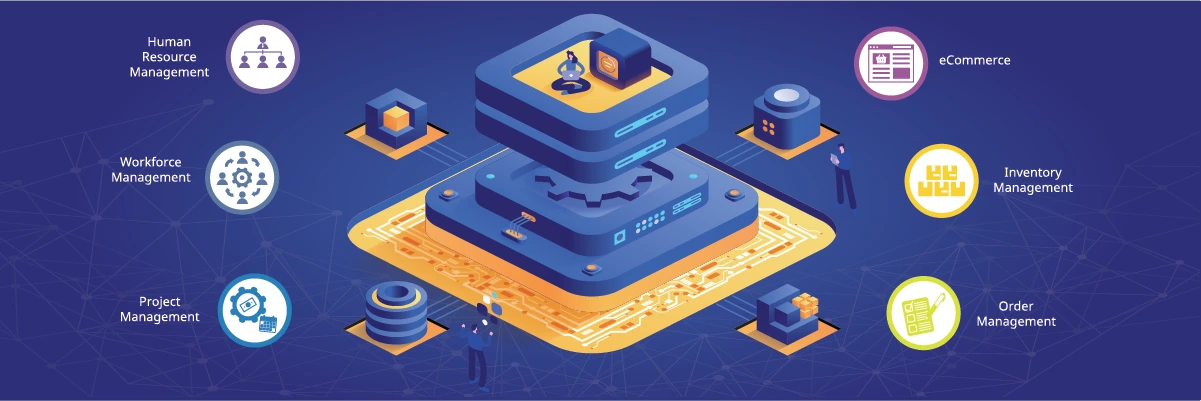
Blockchain is changing the way many industries work, and real estate is no exception. From property records to secure payments, blockchain can make real estate transactions faster, safer, and more transparent.
However, despite these benefits, blockchain adoption in the real estate sector is still progressing slowly. Many people don’t fully understand the technology, while others are unsure about how it will affect existing systems.
So, how can we fix this? The answer lies in building trust, educating users, and creating easy-to-use platforms. By focusing on how to boost blockchain adoption in real estate, we can help more people see its value. Today, some real estate platforms using blockchain are already proving how powerful this technology can be for buyers, sellers, and agents alike.
If you are ready to use these benefits, it might be time to hire a blockchain developer for real estate transactions by someone who can build secure, smart, and scalable solutions that modernize property deals.
In this blog, we will explore the benefits of blockchain in real estate transactions, look at why blockchain adoption is slow in real estate, and share smart ways to encourage users to adopt blockchain for property deals. Whether you are a developer, an agent, or simply curious, this blog will help you understand the path forward.
Think of blockchain as a special kind of digital notebook or ledger. Every time something important happens, such as the sale of a house or the signing of a property agreement, that event gets written into this notebook.
In real estate, this technology helps by turning property titles, sales, and payments into clear, digital records. It improves safety, reduces fraud, and speeds up the process.
That is why many experts are now focusing on blockchain adoption in real estate and exploring real estate platforms using blockchain to make buying and selling property easier and more secure.
Here is what makes it different and powerful:
The real estate world is full of paperwork, middlemen, and delays. Buying or selling a home often feels like a slow and complicated process. But blockchain can change that. It brings in speed, trust, and security, things the real estate market really needs.
That is why more and more companies and governments are paying attention to the situation. In fact, the blockchain market was worth $12.4 billion in 2023, and experts say it will grow by more than 57% every year over the next few years. It shows just how fast the world is moving toward blockchain, and real estate is a big part of that.
Here is a deeper look at why blockchain adoption in real estate is becoming so important:
In regular property deals, people often don’t know who owns what or when something changes. Buyers may not know if the property has a clear title. Sellers may not be sure if payments are processed. Government offices may take time to verify records.
But with the blockchain, every step of the process is recorded in real-time and stored in a shared digital ledger. It means everyone involved, buyers, sellers, agents, banks, and regulators, has access to the same information.
Once something is recorded, such as the transfer of ownership or a payment, it cannot be hidden or changed.
This kind of full transparency builds trust, reduces misunderstanding, and prevents dishonest activity. It also helps people feel confident when making big decisions like buying a property.
Real estate fraud is a serious issue. People can forge papers or sell the same property to different buyers. But Blockchain is built to secure.
Each transaction on a blockchain is protected with strong cryptography. Once a record is added, it’s locked in place. It cannot be changed, deleted, or faked without alerting the entire system. It makes it nearly impossible for someone to commit fraud without being caught.
By using blockchain, we reduce the chance of scams, protect sensitive information, and make property records much more reliable.
Traditional real estate deals involve a lot of steps: signing documents, getting approvals, verifying ownership, sending money, etc. These steps can take weeks and sometimes months.
With blockchain, many of these steps can be automated using smart contracts. These are self-executing programs that automatically carry out an agreement when conditions are met. For example, a smart contract can transfer property ownership once payment is received, all without manual paperwork.
Another big advantage is the cost. Real estate deals often come with hidden fees, agent commissions, lawyer charges, government duties, courier costs, and more. On top of that, mistakes or delays can lead to more expenses.
Blockchain simplifies the process. With fewer middlemen, less paperwork, and an automatic system, it is possible to cut down transaction costs in a big way. Also, since there is less room for errors, you save money fixing problems that could have been avoided.
This is one of the most important points for those wondering how to boost blockchain adoption in real estate. When people realize it saves money, they are more likely to use it.
Waiting for signatures, bank transfers, legal checks, and title approvals can drag out a property deal for weeks or even months. Blockchain offers a much faster process.
Since everything is digital, live, and always updated, you can complete key steps in just hours or a few days. There’s no need to wait on physical documents or delayed approvals.
This faster closing process is especially useful in urgent or high-demand markets, where delays can cost buyers and sellers both time and money.
Buying property in another country is usually complex. There are legal barriers, currency issues, and lots of extra paperwork.
But with real estate platforms using blockchain, cross-border transactions become much easier. Buyers from any part of the world can view verified property records, make payments using digital currencies, and complete transactions without being physically present.
It opens the door for global investments in local real estate markets, helping sellers find more buyers and investors find more opportunities.
Buying property is expensive. Not everyone can afford to invest in an entire apartment or commercial building. But what if you could buy just a small piece?
That is exactly what blockchain enables through fractional ownership. It allows a property to be divided into digital shares (tokens), and investors can buy just a portion of it. This lowers the entry barrier, especially for young investors or those with limited savings.
It is a powerful way to make real estate investment more inclusive, and it’s another reason why encouraging users to adopt blockchain for property deals makes sense.
Blockchain technology has the power to improve real estate by making deals faster, more secure, and paperless. But still, very few people in India and around the world are using it in property transactions. Let’s look at the main reasons why blockchain adoption in real estate is slow, even though the benefits are clear.
Most people have heard of blockchain, but they don’t really understand how it works or how it helps in real estate. Without proper knowledge, buyers, sellers, and agents are not ready to use it. This is a list of problems faced by people.
Real estate deals involve a lot of money. People don’t want to take risks with something they don’t fully trust. Since blockchain is still new for many, they prefer to stick with the old, familiar way. Here is the list of some problems:
In many places, the legal system does not yet support blockchain-based property transfers. Land records and registrations are still done on paper or using old computer systems. Until governments fully accept digital property records, real estate platforms using blockchain cannot move ahead easily. These are some of the following problems:
Building blockchain-based systems requires skilled developers, strong security, and modern infrastructure. Small property agencies or startups may not have the budget or resources to shift to blockchain right away. Here are the following problems listed:
Every country and sometimes every city has different rules for real estate. There is no single system or standard for using blockchain in property deals, which makes it harder for users to adopt it quickly. This is the list of some of the problems:
Many real estate agents, banks, and lawyers are not trained in blockchain technology. Since they are key players in property deals, their slow adoption delays the whole process. Here are the following problems:
Even though blockchain has many benefits, people are still slow to use it in real estate. Why? Because it’s new, complex, and not widely understood. Most buyers and sellers are still used to the old ways: paper documents, property agents, and long wait times. That is why blockchain adoption in real estate is still growing slowly.
One way to overcome this challenge is to hire a blockchain developer for real estate transactions who can create user-friendly, secure platforms that simplify the process for everyone involved.
But with the right approach, we can change this. By making blockchain more accessible and trusted, we can encourage users to adopt blockchain for property deals and unlock its full potential.
Here are some simple and effective ways to help boost trust and usage:
One reason blockchain adoption in real estate is slow is that the technology seems confusing. To fix this, we need to explain it in simple words.
For example: “Blockchain is like a shared digital notebook that keeps property records safe, clear, and easy to track.” When people understand it, they feel more confident using it.
People trust what they see. Sharing examples of real estate platforms using blockchain can help others feel it’s safe and reliable. Stories such as “This home sale completed in 24 hours using blockchain” can encourage more people to give it a try.
Many users still don’t know the full benefits of blockchain in real estate transactions, such as lower costs, faster processing, better security, and fraud prevention. Highlighting these points on websites, brochures, and during meetings can help users understand what they gain.
Most users will not adopt blockchain if they feel lost. Offering guides, live support, or simple tutorials can make a big difference. A clear process removes fear and encourages action.
Working with banks, real estate agents, or legal experts who support blockchain can make users feel safer. People are more open to new technology when it’s backed by someone they trust.
Complicated websites and apps scare people away. To increase blockchain adoption in real estate, platforms must be easy to use. Simple design, clear buttons, and helpful messages go a long way.
Don’t push users to go fully digital right away. Let them try small actions such as verifying property titles or seeing ownership history using blockchain. This way, they build trust step by step.
Blockchain technology has the potential to completely transform how real estate transactions are handled. By using blockchain, the process of buying, selling, and managing properties can become faster, safer, and more transparent.
The ability to cut down paperwork, reduce fraud, and ensure that everyone has access to the same trusted information makes it a powerful tool for the future of property transactions. But despite these clear advantages, adoption is still limited due to a lack of awareness, unclear laws, and resistance to change.
Technical Content Writer
Kavita has a strong background in technology and writes about cybersecurity, software development, and digital marketing. She makes complex topics simple and easy to understand. Her content helps businesses, developers, and marketers learn about cybersecurity threats, best practices, software development, and digital strategies to stay informed and succeed online.



